LAS VEGAS (AP) — Boise State, which twice boycotted regular-season matches with San Jose State, pulled out of the Mountain West women's volleyball tournament Wednesday night even after securing a spot in the semifinals against the Spartans.
San Jose State, which received six forfeit victories because of boycotts from Mountain West opponents, is seeded second in the conference tournament and received a first-round bye. Now the Spartans will advance all the way to Saturday's championship match rather than take the court Friday.
Boise State released a statement that read: “The decision to not continue to play in the 2024 Mountain West Volleyball Championship tournament was not an easy one. Our team overcame forfeitures to earn a spot in the tournament field and fought for the win over Utah State in the first round on Wednesday. They should not have to forgo this opportunity while waiting for a more thoughtful and better system that serves all athletes.”
San Jose State said it would issue a statement Thursday.
Boise State's announcement came hours after the Broncos defeated Utah State 25-19, 18-25, 25-20, 25-23 in the quarterfinals.
Boise State didn't commit immediately after the match to playing San Jose State. What went into its decision to withdraw from the tournament was unclear, whether it was by a team vote or more of a university decision.
The title match likely will go on as scheduled. San Jose State will play either top-seeded Colorado State or No. 5 San Diego State. Both teams played the Spartans this season rather than sit out.
Mountain West members Boise State, Wyoming, Utah State and Nevada as well as Southern Utah canceled games this season against the Spartans. Nevada’s players stated they “refuse to participate in any match that advances injustice against female athletes,” without providing further details.
Idaho Gov. Brad Little signed an executive order Aug. 28 called the Defending Women’s Sports Act that challenges how Title IX rules are interpreted in that state.
“Biological males – men and boys – have physical differences that give them an unfair advantage when competing with women and girls in athletics,” Little said at the time.
A lawsuit was recently filed in Colorado by players from various schools against the conference and San Jose State officials calling for a Spartans player not to be allowed participation in the tournament, citing unspecified reports asserting there was a transgender player on the San Jose State volleyball team, even naming her.
U.S. Magistrate Judge S. Kato Crews in Denver ruled Monday that the player is allowed to play, and a federal appeals court upheld the decision the following day.
While some media have reported those and other details, neither San Jose State nor the forfeiting teams have confirmed the school has a trans women’s volleyball player. The Associated Press is withholding the player’s name because she has not publicly commented on her gender identity and through school officials has declined an interview request.
Wyoming and Nevada did not qualify for the tournament.
Participation of transgender women in women’s sports is apparently why the five teams canceled their games against San Jose State, and the topic became a hot political topic ahead of the recent election.
AP college sports: https://apnews.com/hub/college-sports

FILE - The San Jose State University Spartans line up for the playing of the national anthem and player introductions for their NCAA Mountain West women's volleyball game against the Colorado State University Rams in Fort Collins, Colo., on Oct. 3, 2024. (Santiago Mejia/San Francisco Chronicle via AP, file)
SEOUL, South Korea (AP) — South Korea’s central bank lowered its key policy rate for a second straight month and said the country’s economy will grow at a slower pace than it initially anticipated.
Following a policy meeting, the Bank of Korea cut its benchmark interest rate by a quarter percentage point to 3%. The bank lowered its outlook for the country’s economic growth to 2.2% from 2.4% for this year and to 1.9% from 2.1% for 2025.
The bank is taking steps to lower borrowing costs despite the lingering effects of high inflation and alarming levels of household debt, as the economy falters.
The bank cut its policy rate by a quarter percentage point to 3.25% in October in its first rate cut since May 2020 in the depths of the COVID-19 pandemic.
The bank said the country’s trade-dependent economy faces growing uncertainty in global economic trends and inflation that could be impacted by the policies of President-elect Donald Trump and ongoing geopolitical conflicts.
Since winning reelection, Trump has vowed to slap huge new tariffs on foreign products entering the United States, including those from Mexico, Canada and China, which he insists will create more domestic jobs and shrink the federal deficit.
In a news conference, Bank of Korea Governor Rhee Chang Yong said the bank faced a difficult decision over whether to freeze the rate or lower it. But a bigger-than-expected decline in exports during the last quarter and Trump’s election win moved the needle.
“We had been contemplating the uncertainties that would be brought by the results of the U.S. presidential election, but a ‘red sweep’ where the House and Senate were all won by one side was something we did not anticipate,” Rhee said.
Rhee said Trump’s win “increased the uncertainty in policy, not only for us but for the world,” but said it was too early to predict how Trump’s steps on tariffs would impact South Korean exports.
The rate cut could help spur domestic consumption by putting more money into the economy, but is unlikely to reverse the slowdown in exports, which is due to long-term competitiveness issues in key industries that should be addressed through policy changes or restructuring, Rhee said.
Rhee said three of the six monetary policy committee members believe that the bank should lower the rate further within the next three months to help revive the sluggish economy. The bank will closely monitor trends in household debt and property prices before considering another cut, he said.
The bank said in a statement that South Korea’s economy has been losing momentum due to weak domestic spending, slowing exports and rising unemployment.
“Going forward, domestic consumption will see a mild recovery, but the recovery in exports is likely to be weaker than initially anticipated due to intensifying competition and strengthening of protectionist trade policies in key industries,” it said.
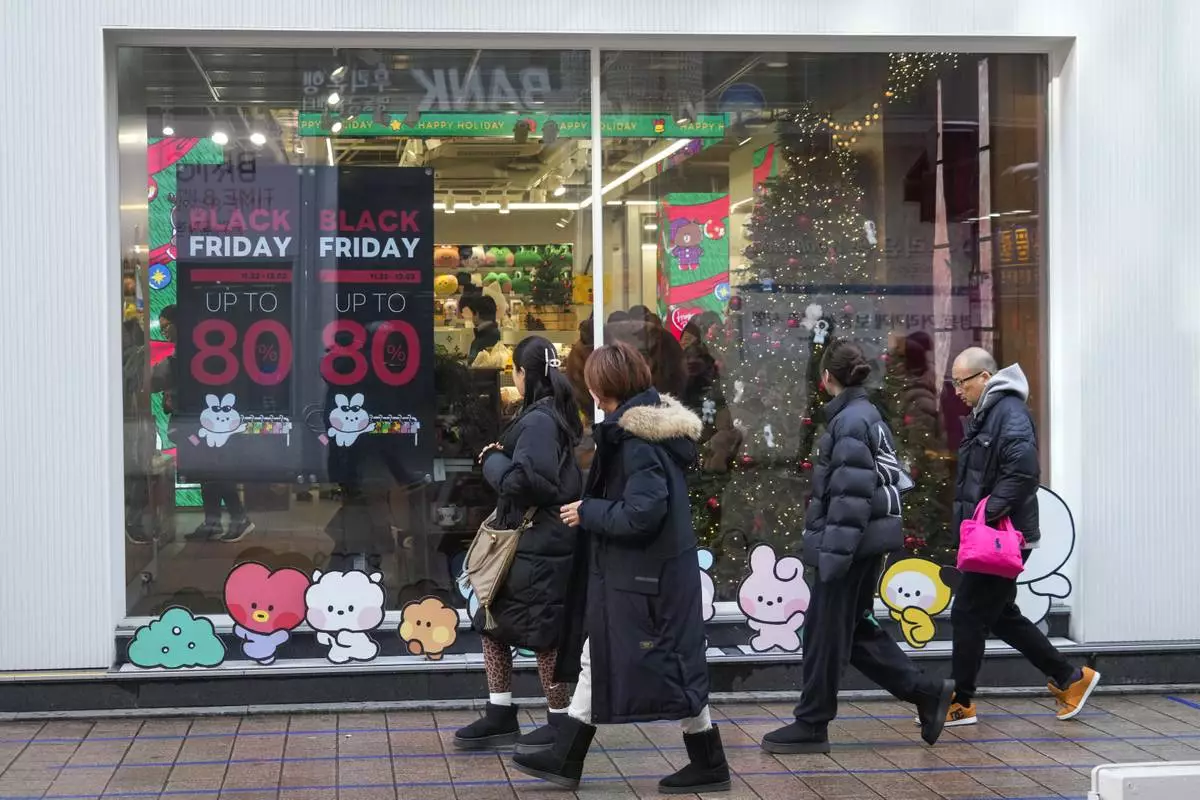
People walk by sale signs on the shopping street in Seoul, South Korea, Thursday, Nov. 28, 2024.(AP Photo/Ahn Young-joon)
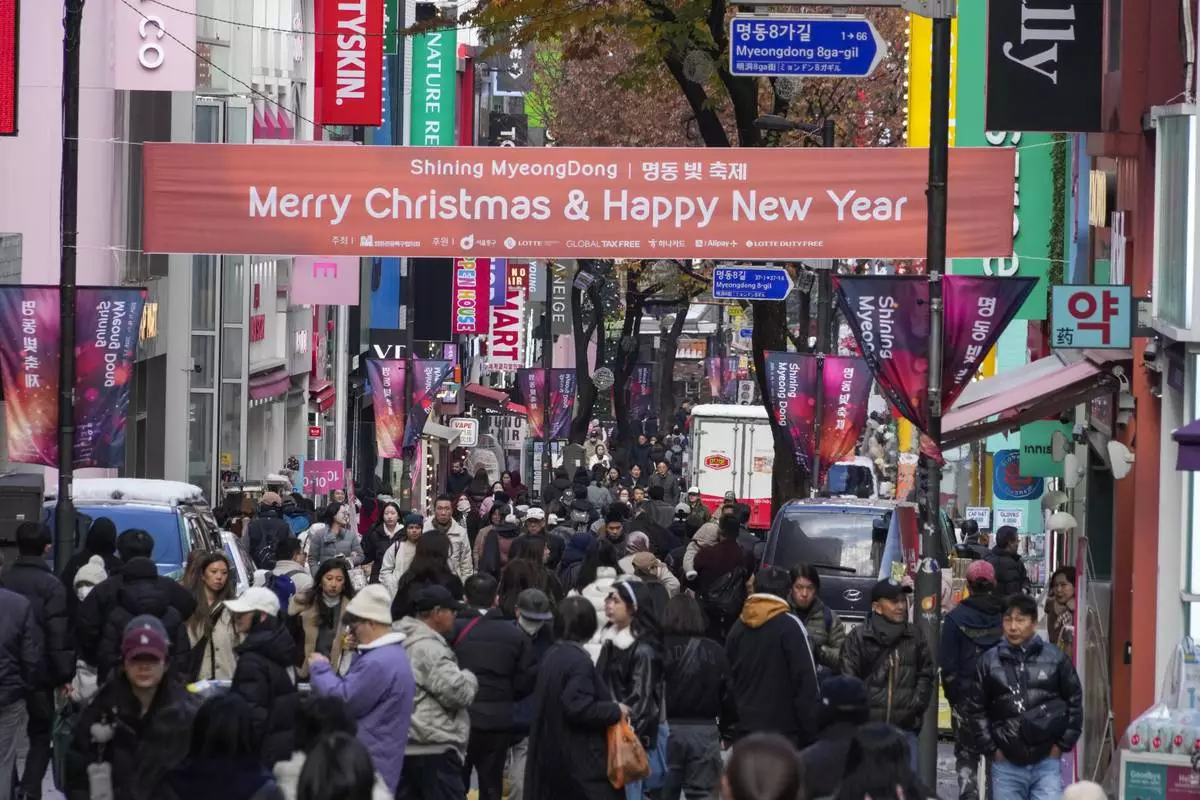
People walk on the shopping street in Seoul, South Korea, Thursday, Nov. 28, 2024.(AP Photo/Ahn Young-joon)
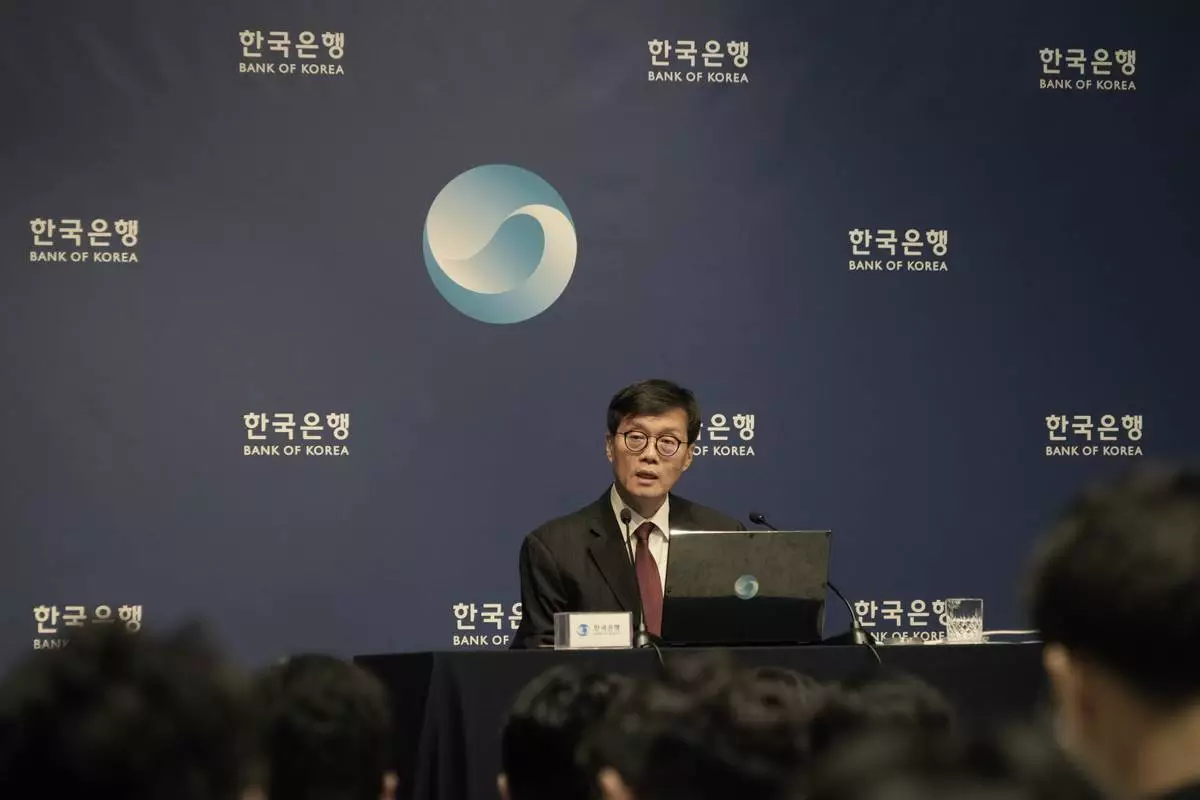
Bank of Korea Gov. Rhee Chang-yong speaks during a press conference at the central bank in Seoul, South Korea, Thursday, Nov. 28, 2024. (AP Photo/Ahn Young-joon)
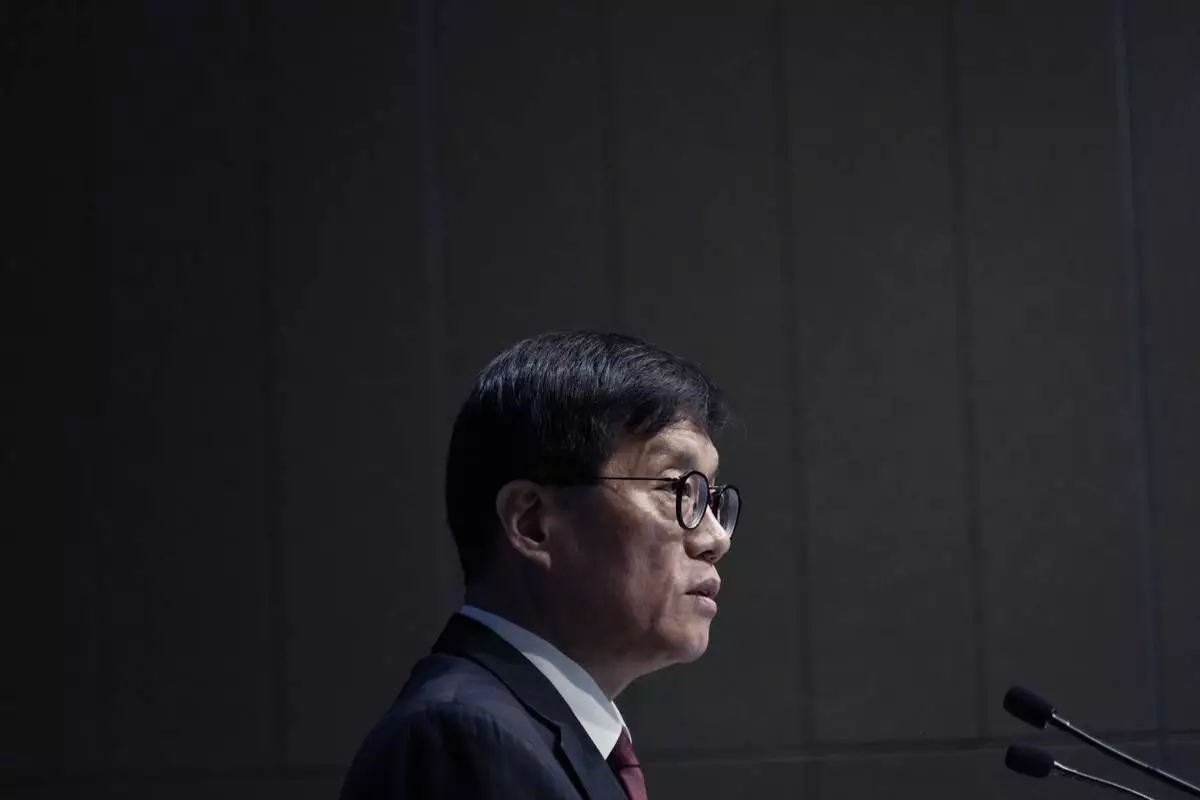
Bank of Korea Gov. Rhee Chang-yong speaks during a press conference at the central bank in Seoul, South Korea, Thursday, Nov. 28, 2024. (AP Photo/Ahn Young-joon)
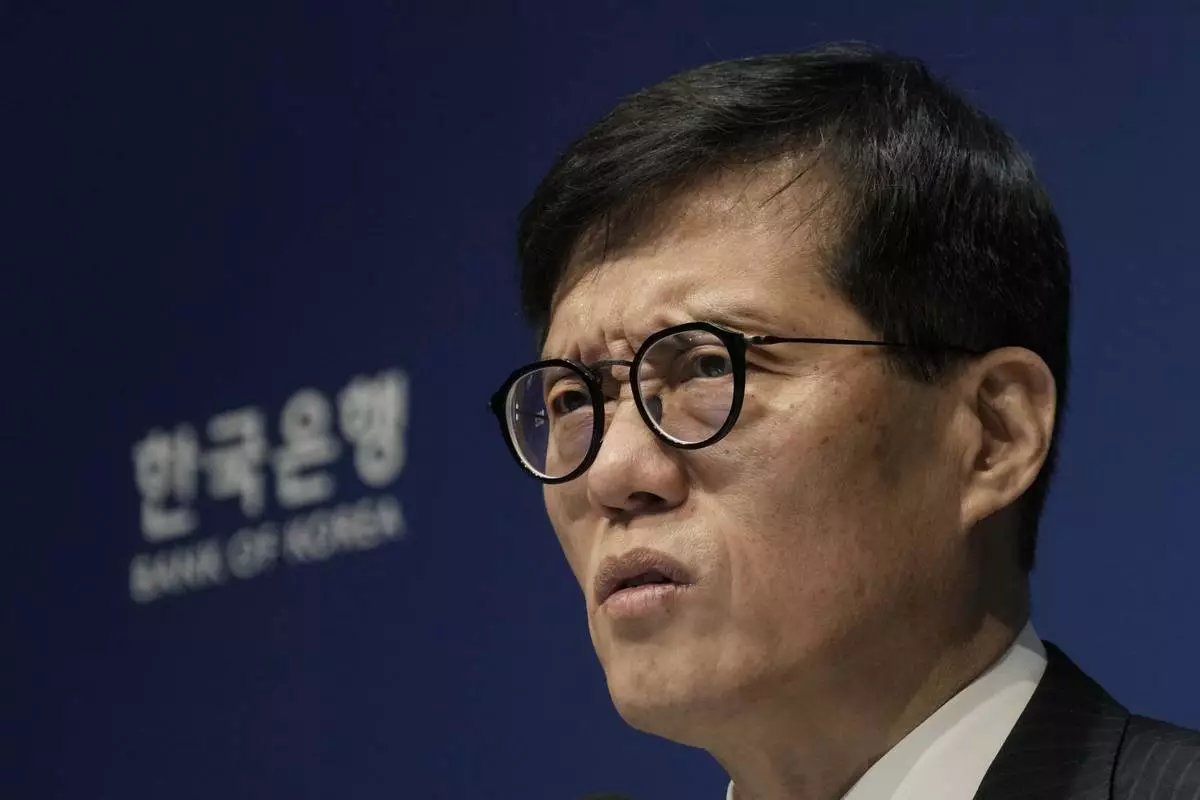
Bank of Korea Gov. Rhee Chang-yong speaks during a press conference at the central bank in Seoul, South Korea, Thursday, Nov. 28, 2024. (AP Photo/Ahn Young-joon)
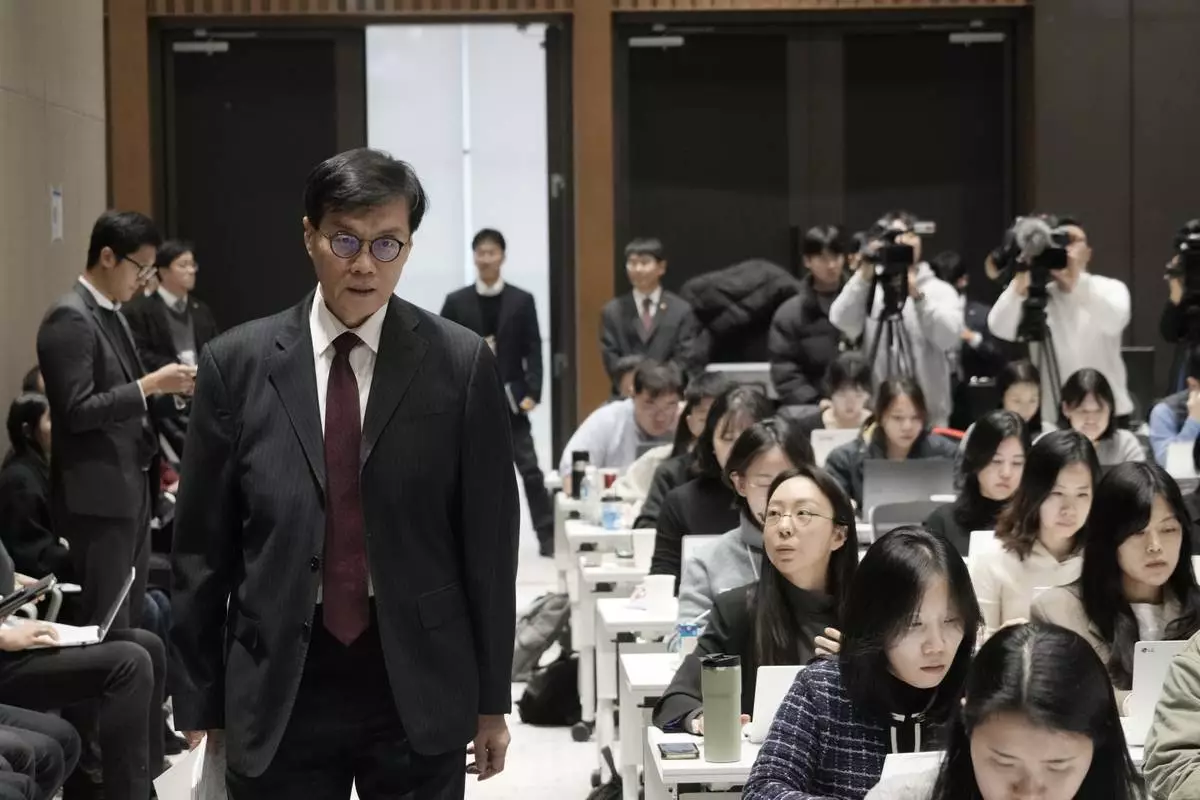
Bank of Korea Gov. Rhee Chang-yong arrives to hold a press conference at the central bank in Seoul, South Korea, Thursday, Nov. 28, 2024. (AP Photo/Ahn Young-joon)
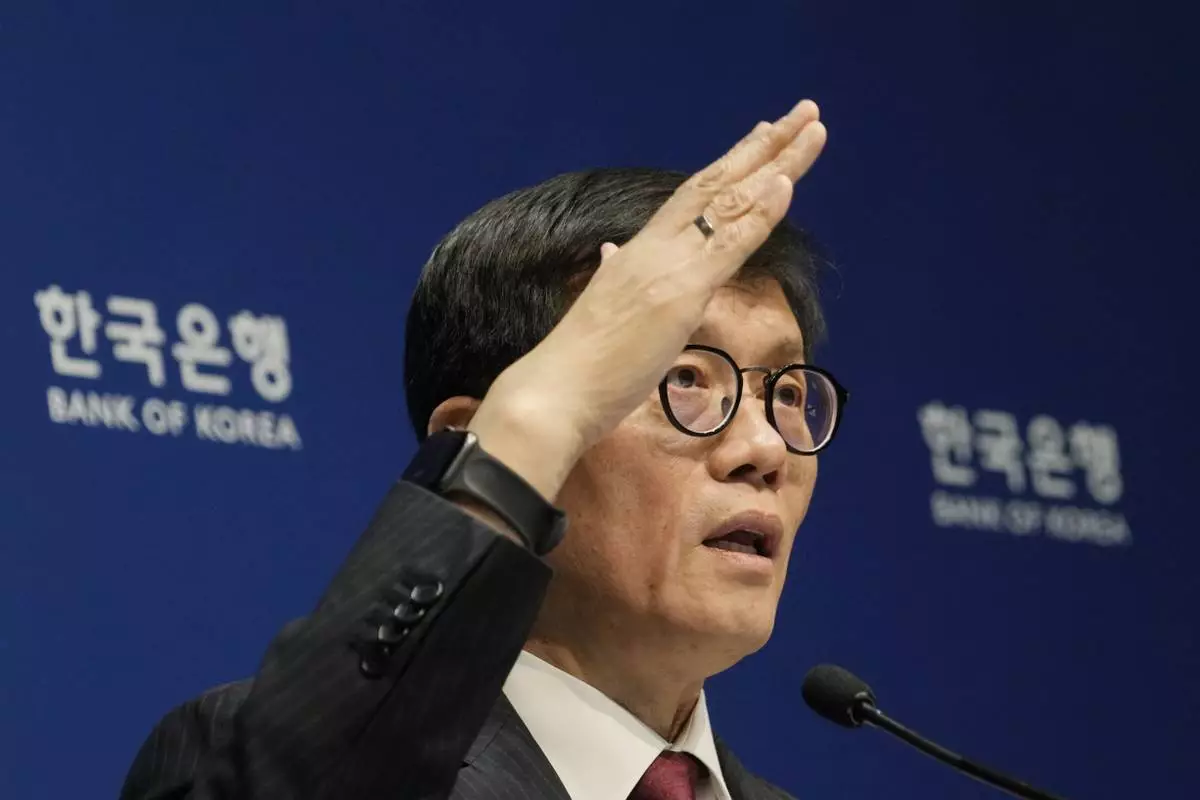
Bank of Korea Gov. Rhee Chang-yong speaks during a press conference at the central bank in Seoul, South Korea, Thursday, Nov. 28, 2024. (AP Photo/Ahn Young-joon)
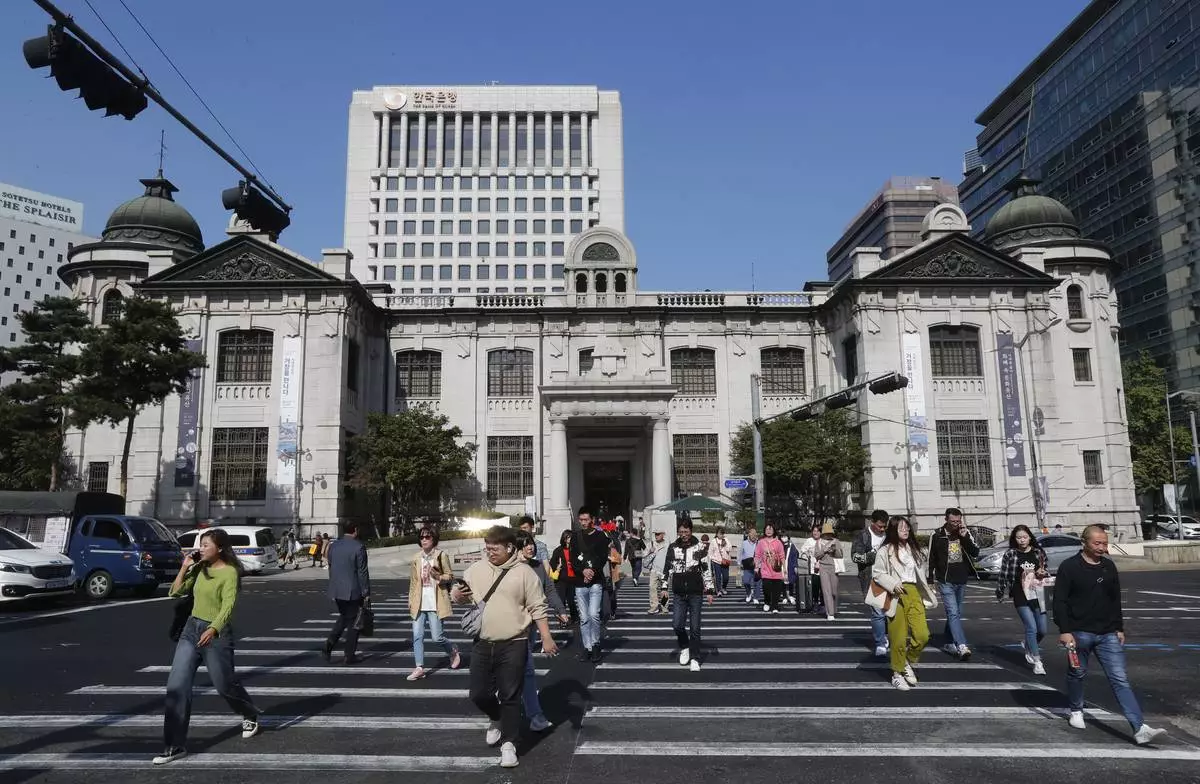
FILE - People pass by the headquarters of the Bank of Korea in Seoul, South Korea, Oct. 16, 2019. (AP Photo/Ahn Young-joon, File)


















